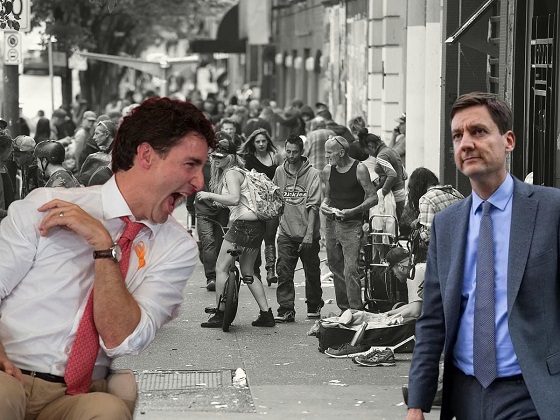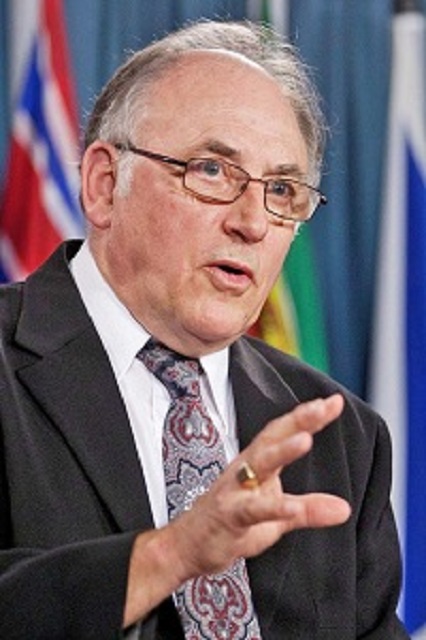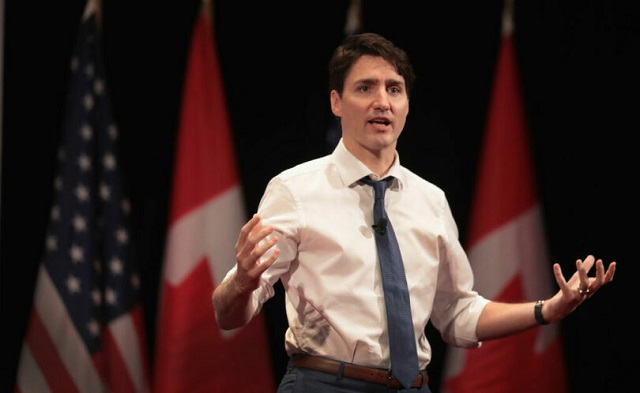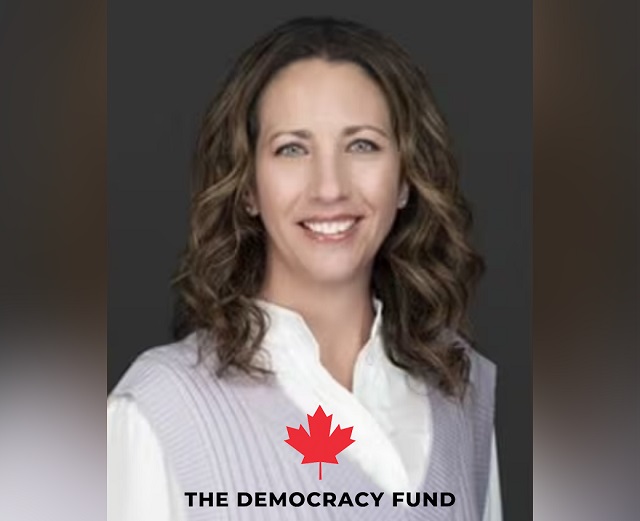Economy
Federal carbon tax hike will hurt future generations
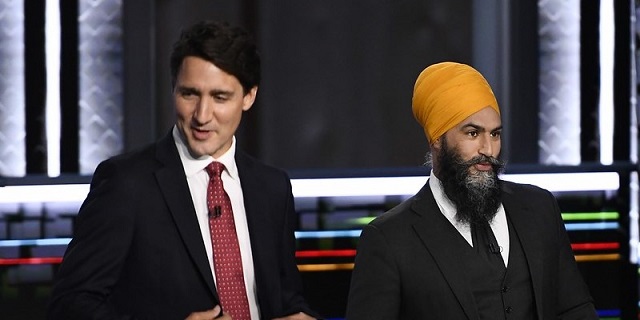
From the Fraser Institute
” since 2005, emissions from China increased by a staggering 71.7 per cent. It’s absurd to think that, even if Canada could drive it’s GHG emissions to zero, there would be any measurable impact on the global climate. “
Despite calls from seven of Canada’s premiers (including one premier from his own party) to scrap the upcoming carbon tax hike, and the threat of a non-confidence vote by the Opposition in Parliament, Prime Minister Trudeau has doubled down as he tries to convince Canadians that somehow this tax, which is set to rise from $65 per tonne of greenhouse gas emissions (GHG) to $80/tonne on April 1, will really be good for them.
Speaking with reporters in Calgary (not coincidentally Premier Danielle Smith’s backyard), the prime minister said, “My job is not to be popular,” adding “My job is to do the right things for Canada now and do the right things for Canadians a generation from now” to “deliver that better future one generation from now, two generations from now.”
But Trudeau’s argument that somehow GHG reductions, which might stem from Canada’s carbon tax, will yield appreciable benefits of any kind—economic or environmental—now or in future is nonsense.
Why?
Because Canada’s share of global GHG emissions is slowly declining and small relative to the world’s larger emitters particularly China. Indeed, in 2021 Canada’s emissions comprised 1.5 per cent of global GHG emissions compared to 26 per cent for China (in 2018). And since 2005, emissions from China increased by a staggering 71.7 per cent. It’s absurd to think that, even if Canada could drive it’s GHG emissions to zero, there would be any measurable impact on the global climate. And no impact on climate means no improved environmental benefits for future generations.
Economically, the prime minister’s argument is even less compelling than the proclaimed environmental benefit. According to a study published by the Fraser Institute, implementing a $170 carbon tax would shrink Canada’s economy by 1.8 per cent and produce significant job losses and reduced real income in every province.
The cadre of Trudeau government policies, including the carbon tax and imposition of federal bills C-48 (which bans large oil tankers carrying crude oil off British Columbia’s north coast, limiting access to Asian markets) and C-69 (which introduces subjective criteria including the “social impact” of energy investment into the evaluation process of major energy projects), combined with impending regulations such as GHG emission caps, are contributing to a collapse in business investment and ultimately economic stagnation in Canada. Per-person gross domestic product (GDP)—a broad measure of living standards—has barely budged in the last nine years and in fact stood in 2014 at $58,162, which is $51 higher than at the end of 2023 (inflation-adjusted). In other words, living standards for Canadians have declined.
Capital investment, which contributes to economic growth and higher living standards, is also declining. A 2021 Fraser Institute study showed that the growth rate of overall capital expenditures in Canada slowed substantially from 2005 to 2019, and the growth rate from 2015 to 2019 was lower than in virtually any other period since 1970. Moreover, as recently as 2000 to 2010, overall capital investment in Canada enjoyed a substantially higher growth rate than in other developed countries, but from 2010 to 2019, Canada’s investment growth rate dropped substantially below that of the United States and many other developed countries. Corporate investment in Canada as a share of total investment was also the lowest among a set of developed countries from 2005 to 2019.
Far from delivering environmental or economic benefits for Canadians “one generation from now” or “two generations from now,” Prime Minister Trudeau’s policies have thrown serious shadows over the future economic prospects of Canadians who will find themselves less well-off and less economically capable of adapting to predicted climate risks whether manmade or natural.
Author:
Business
Taxpayers criticize Trudeau and Ford for Honda deal

From the Canadian Taxpayers Federation
Author: Jay Goldberg
The Canadian Taxpayers Federation is criticizing the Trudeau and Ford governments to for giving $5 billion to the Honda Motor Company.
“The Trudeau and Ford governments are giving billions to yet another multinational corporation and leaving middle-class Canadians to pay for it,” said Jay Goldberg, CTF Ontario Director. “Prime Minister Justin Trudeau is sending small businesses bigger a bill with his capital gains tax hike and now he’s handing out billions more in corporate welfare to a huge multinational.
“This announcement is fundamentally unfair to taxpayers.”
The Trudeau government is giving Honda $2.5 billion. The Ford government announced an additional $2.5 billion subsidies for Honda.
The federal and provincial governments claim this new deal will create 1,000 new jobs, according to media reports. Even if that’s true, the handout will cost taxpayers $5 million per job. And according to Globe and Mail investigation, the government doesn’t even have a proper process in place to track whether promised jobs are actually created.
The Parliamentary Budget Officer has also called into question the government’s claims when it made similar multi-billion-dollar handouts to other multinational corporations.
“The break-even timeline for the $28.2 billion in production subsidies announced for Stellantis-LGES and Volkswagen is estimated to be 20 years, significantly longer than the government’s estimate of a payback within five years for Volkswagen,” wrote the Parliamentary Budget Officer said.
“If politicians want to grow the economy, they should cut taxes and red tape and cancel the corporate welfare,” said Franco Terrazzano, CTF Federal Director. “Just days ago, Trudeau said he wants the rich to pay more, so he should make rich multinational corporations pay for their own factories.”
Business
Maxime Bernier warns Canadians of Trudeau’s plan to implement WEF global tax regime

From LifeSiteNews
If ‘the idea of a global corporate tax becomes normalized, we may eventually see other agreements to impose other taxes, on carbon, airfare, or who knows what.’
People’s Party of Canada leader Maxime Bernier has warned that the Liberal government’s push for World Economic Forum (WEF) “Global Tax” scheme should concern Canadians.
According to Canada’s 2024 Budget, Prime Minister Justin Trudeau is working to pass the WEF’s Global Minimum Tax Act which will mandate that multinational companies pay a minimum tax rate of 15 percent.
“Canadians should be very concerned, for several reasons,” People’s Party leader Maxime Bernier told LifeSiteNews, in response to the proposal.
“First, the WEF is a globalist institution that actively campaigns for the establishment of a world government and for the adoption of socialist, authoritarian, and reactionary anti-growth policies across the world,” he explained. “Any proposal they make is very likely not in the interest of Canadians.”
“Second, this minimum tax on multinationals is a way to insidiously build support for a global harmonized tax regime that will lower tax competition between countries, and therefore ensure that taxes can stay higher everywhere,” he continued.
“Canada reaffirms its commitment to Pillar One and will continue to work diligently to finalize a multilateral treaty and bring the new system into effect as soon as a critical mass of countries is willing,” the budget stated.
“However, in view of consecutive delays internationally in implementing the multilateral treaty, Canada cannot continue to wait before taking action,” it continued.
The Trudeau government also announced it would be implementing “Pillar Two,” which aims to establish a global minimum corporate tax rate.
“Pillar Two of the plan is a global minimum tax regime to ensure that large multinational corporations are subject to a minimum effective tax rate of 15 per cent on their profits wherever they do business,” the Liberals explained.
“The federal government is moving ahead with legislation to implement the regime in Canada, following consultations last summer on draft legislative proposals for the new Global Minimum Tax Act,” it continued.
According to the budget, Trudeau promised to introduce the new legislation in Parliament soon.
The global tax was first proposed by Secretary-General of Amnesty International at the WEF meeting in Davos this January.
“Let’s start taxing carbon…[but] not just carbon tax,” the head of Amnesty International, Agnes Callamard, said during a panel discussion.
According to the WEF, the tax, proposed by the Organization for Economic Co-operation and Development (OECD), “imposes a minimum effective rate of 15% on corporate profits.”
Following the meeting, 140 countries, including Canada, pledged to impose the tax.
While a tax on large corporations does not necessarily sound unethical, implementing a global tax appears to be just the first step in the WEF’s globalization plan by undermining the sovereignty of nations.
While Bernier explained that multinationals should pay taxes, he argued it is the role of each country to determine what those taxes are.
“The logic of pressuring countries with low taxes to raise them is that it lessens fiscal competition and makes it then less costly and easier for countries with higher taxes to keep them high,” he said.
Bernier pointed out that competition is good since it “forces everyone to get better and more efficient.”
“In the end, we all end up paying for taxes, even those paid by multinationals, as it causes them to raise prices and transfer the cost of taxes to consumers,” he warned.
Bernier further explained that the new tax could be a first step “toward the implementation of global taxes by the United Nations or some of its agencies, with the cooperation of globalist governments like Trudeau’s willing to cede our sovereignty to these international organizations.”
“Just like ‘temporary taxes’ (like the income tax adopted during WWI) tend to become permanent, ‘minimum taxes’ tend to be raised,” he warned. “And if the idea of a global corporate tax becomes normalized, we may eventually see other agreements to impose other taxes, on carbon, airfare, or who knows what.”
Trudeau’s involvement in the WEF’s plan should not be surprising considering his current environmental goals – which are in lockstep with the United Nations’ 2030 Agenda for Sustainable Development – which include the phasing out coal-fired power plants, reducing fertilizer usage, and curbing natural gas use over the coming decades.
The reduction and eventual elimination of so-called “fossil fuels” and a transition to unreliable “green” energy has also been pushed by the World Economic Forum – the aforementioned group famous for its socialist “Great Reset” agenda – in which Trudeau and some of his cabinet are involved.
-

 Censorship Industrial Complex1 day ago
Censorship Industrial Complex1 day agoNow We Are Supposed to Cheer Government Surveillance?
-

 Alberta1 day ago
Alberta1 day agoRed Deer Doctor critical of Alberta’s COVID response to submit report to Danielle Smith this May
-

 conflict2 days ago
conflict2 days agoCol. Douglas Macgregor torches Trump over support for bill funding wars in Ukraine and Israel
-

 Alberta2 days ago
Alberta2 days agoAlberta’s baby name superstar steals the show again
-

 Uncategorized2 days ago
Uncategorized2 days agoThe end of Canada: The shift from democracy to totalitarian behavior in the ‘pandemic era’
-

 Business16 hours ago
Business16 hours agoDon’t be fooled by high-speed rail
-

 Alberta15 hours ago
Alberta15 hours agoActivity-Based Hospital Funding in Alberta: Insights from Quebec and Australia
-

 Health2 days ago
Health2 days agoTransgender activists are threatening the author of scathing UK report on child ‘sex changes’


